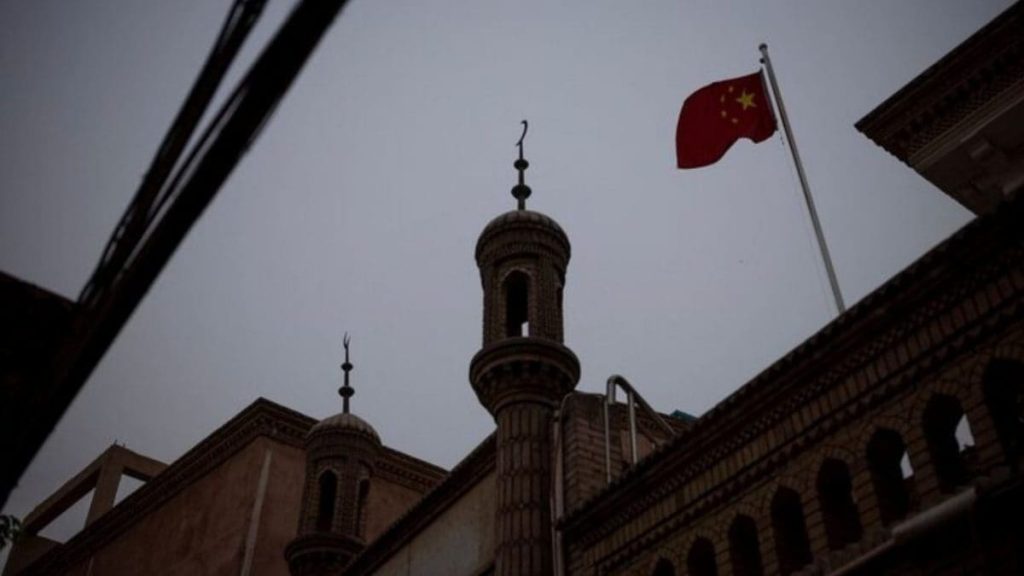The US House Select Committee on China has accused Nvidia CEO Jensen Huang of exploiting regulatory loopholes to export advanced chips to China. In its report, the committee claimed China developed its chatbot DeepSeek “using over 60,000 Nvidia chips
read more
The US House Select Committee on China on Friday (April 18) claimed that the Chinese communist party (CCP) was using advanced chips, possibly sourced from the US, to “monitor Uyghur Muslims through cameras, facial recognition, and biometric data.” The system, powered by advanced chips, reportedly flags “suspicious” behaviour to the Chinese government, including “growing a beard or using WhatsApp”.
The CCP uses advanced chips to monitor Uyghur Muslims through cameras, facial recognition, and biometric data.
These systems flag “suspicious” behavior—like growing a beard or using WhatsApp—and are used to track women of childbearing age for forced sterilization. https://t.co/aC1MSYfxVc
— Select Committee on the Chinese Communist Party (@committeeonccp) April 18, 2025
In a detailed report published on April 16, the committee also accused Nvidia CEO Jensen Huang of exploiting regulatory loopholes to export these chips to China. In its report, the committee claimed China developed its chatbot DeepSeek “using over 60,000 Nvidia chips”.
The committee chairman John Moolenaar (R-MI) in a statement, alleged that DeepSeek was a “weapon” in the CCP’s arsenal to “spy on Americans, steal our technology, and subvert US law.”
“We now know this tool exploited US AI models and reportedly used advanced Nvidia chips that should never have ended up in CCP hands. That’s why we’re sending a letter to Nvidia to demand answers. American innovation should never be the engine of our adversaries’ ambitions,” Moolenaar added.
The report published four key findings regarding the CCP’s political influence over DeepSeek and how Nvidia was allegedly fuelling China’s rise in the AI sector.
Censorship: According to the claims, more than 85% of DeepSeek’s responses are reportedly filtered or manipulated to align with the Chinese Communist Party’s (CCP) positions, particularly suppressing content about democracy, human rights, Taiwan, and Hong Kong
Foreign control: The platform is said to be operated by a company with strong links to the CCP, and ideologically tied to Xi Jinping Thought.
Privacy: There are also alarming claims about user data protection. DeepSeek’s infrastructure allegedly involves collaboration with entities like ByteDance, Tencent, Baidu, and China Mobile—all firms with established records of state-aligned data harvesting
Nvidia’s role: The committee also alleged that China used over 60,000 Nvidia chips to develop its DeepSeek chatbot. It claimed Huang directed “the company to design a modified chip specifically to exploit regulatory loopholes after October 2023 restrictions. The Trump Administration is working to close this loophole.”
Notably, the US Department of Commerce is currently investigation DeepSeek whether the company circumvented export controls by importing restricted Nvidia chips through Singapore—a known transshipment hub with comparatively looser oversight.
Earlier this week, a New York Times report claimed that the Donald Trump administration was mulling banning DeepSeek in the US in view of the threats posed to national security. The report also said that it may outright ban DeepSeek from buying US technology to power its systems, in particular Nvidia chips.
Importantly, Nvidia’s Huang recently travelled to China and met with top Chinese officials, including Vice Premier He Lifeng, amidst the ongoing trade war between the world’s two largest economies. The company is caught in the middle of the tariff war and has lost $5.5 billion since Washington placed restrictions on the export of its H20 artificial intelligence chips to China.
Despite the setback, Huang has vowed to keep working with Chinese firms. Speaking in Beijing during a meeting with Ren Hongbin, chairman of the China Council for the Promotion of International Trade (CCPIT), the CEO said Nvidia remains committed to the Chinese market despite a large hit to its business.

